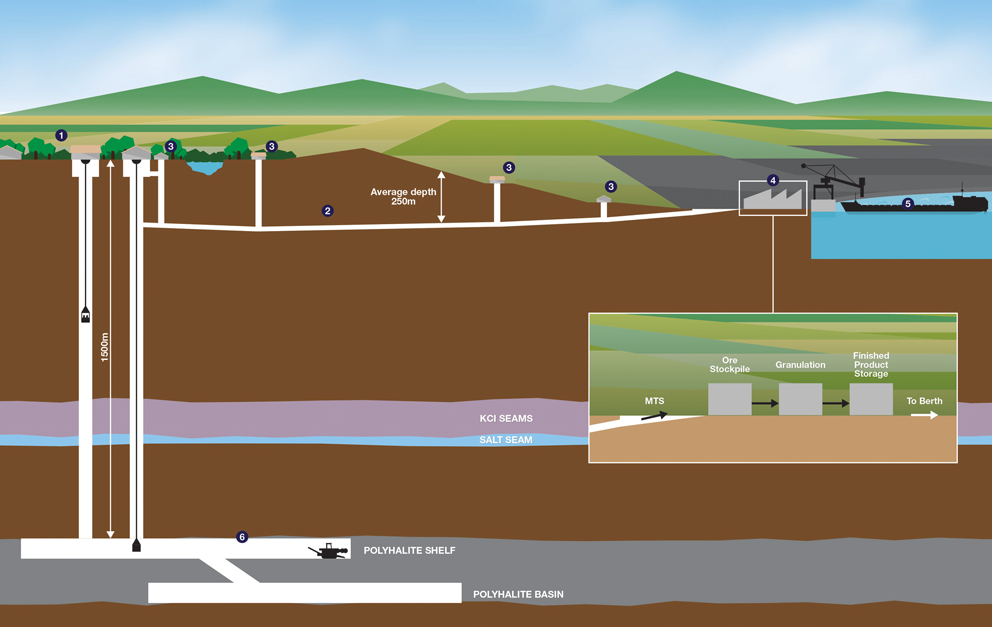Shares in Sirius Minerals (LON:SXX), the British company building a huge fertilizer mine beneath a national park, plummeted on Tuesday after it suspended a planned $500 million bond sale, which was a key part of the necessary funding for its polyhalite mining project.
The company, which launched the high-yield offering in July,
needed to raise that amount to unlock a $2.5bn credit facility being provided
by JPMorgan, aimed at completing development of the Woodsmith project in North
Yorkshire.
Sirius has so far secured a series of offtake agreements to supply as much as 11.7m tonnes of its product a year, but without the main financing it would not have enough money to build the northern England mine.
Slamming the break on the planned bond offering throws Sirius Minerals’ ambitious plans to build a giant fertilizer mine in Yorkshire into doubt.
The London-based firm, in fact, only has enough cash to last
until September, though it may be able to go a bit longer if it slows down the
pace of construction.
The fertilizer producer blamed “current market conditions”
for cancelling the sale, adding that it would “revisit the market when
conditions have improved later this quarter”.
Shares plummeted more than 30% in early trading, only to regain a little ground and close later 29% lower at 10.40p, That leaves the company with a £728.65 million market cap.
“Sirius is now at the
crucial juncture of its $3.8bn Stage 2 financing package for the construction
of its paradigm-shifting North Yorkshire polyhalite project in England,”
analysts at Shore Capital wrote in a note to investors.
The Woodsmith mine, poised to be one of the world’s largest in
terms of the amount of resources extracted, is set to generate an initial
10 million tonnes per year of polyhalite. Output is forecast to reach 13
million tonnes in 2026.
The operation involves sinking two 1.5km shafts below a
national park on the North York Moors and is expected to create about 1,800
jobs during construction, as well as 1,000 permanent positions once it opens,
in May 2021.
The ore will be extracted via the two mine shafts and transported to Teesside on the world’s longest underground conveyor belt via a 37km-underground tunnel. It will then be granulated at a materials handling facility, with the majority being exported to overseas markets.

